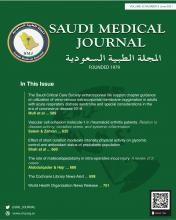26 APRIL 2021 - A recent study provides insights on the COVID-19 pandemic’s effects on employment, anxiety, and financial distress among women with gynecologic cancer and low income. The findings are published early online in CANCER, a peer-reviewed journal of the American Cancer Society.
For the study, Stefanie Chen, MD, of Weill Cornell Medical College in New York City, and her colleagues conducted telephone interviews with 100 women with gynecologic cancer living in New York City who were covered by Medicaid health insurance.
Among the major findings:
• 31 percent of patients reported being employed prior to the pandemic, and 21 percent had a change in employment status due to the pandemic.
• 50 percent of patients reported that they felt more financial stress since the start of the pandemic, and 54 percent reported that they worry about future financial problems due to the pandemic.
• 49 percent of patients expressed increased anxiety about cancer since the start of the pandemic, and 83 percent expressed feeling increased anxiety in general.
Having an income less than $40,000 per year was the most common factor associated with increased financial distress, cancer worry, and anxiety. Early-stage cancer (stage I-II) was also a risk factor for increased financial distress.
“Patients with cancer are already financially vulnerable as many face changes in employment status when they undergo treatment, and also because cancer treatments can become costly as they accrue over time,” said Dr. Chen. “Patients with low income may struggle to prioritize cancer care and treatments over other costs of daily living, especially when they face changes in employment not only due to their cancer diagnosis but also due to the changes in the job market caused by the pandemic.”
Dr. Chen supports increased screening for anxiety and financial stress in these patients. “Understanding the complexity of finances, mental health, and cancer treatments in this population is crucial to the development of interventions and navigation strategies to ensure timely care and to promote survivorship among patients with all stages of cancer,” she said.
The American Cancer Society announced earlier today in a press release that Suresh S. Ramalingam, MD, will join CANCER as the new Editor-in-Chief beginning on July 1, 2021. Dr. Ramalingam is the deputy director of Winship Cancer Institute at Emory University in Atlanta, Georgia, and has worked as a Section Editor for CANCER since 2011. Dr. Ramalingam succeeds Fadlo R. Khuri, MD, whose tenure as Editor-in-Chief concludes later this summer.ead
URL Upon Publication: http://doi.wiley.com/10.1002/cncr.33537
Full Citation: “Financial toxicity, mental health, and gynecologic cancer treatment: The effect of the COVID-19 pandemic among low-income women in New York City.” Yiting Stefanie Chen, Zhen Ni Zhou, Shannon M. Glynn, Melissa K. Frey, Onyinye D. Balogun, Margaux Kanis, Kevin Holcomb, Constantine Gorelick, Charlene Thomas, Paul J. Christos, and Eloise Chapman-Davis. CANCER; Published Online: April 26, 2021 (DOI: 10.1002/cncr.33537).
Copyright © 2021 The Cochrane Collaboration. Published by John Wiley & Sons, Ltd., reproduced with permission.
- Copyright: © Saudi Medical Journal
This is an open-access article distributed under the terms of the Creative Commons Attribution-Noncommercial License (CC BY-NC), which permits unrestricted use, distribution, and reproduction in any medium, provided the original work is properly cited.






